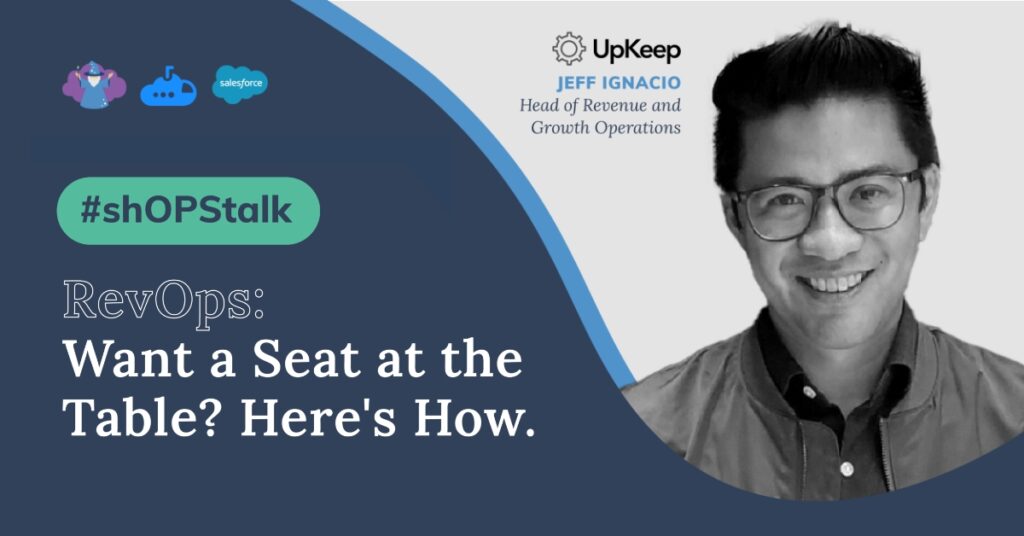How to Gain Your Seat at the RevOps Table
Join Brad Smith from Sonar and Jeff Ignacio, Head of Revenue and Growth Operations at UpKeep, as they discuss how to climb the ladder of RevOps, strategic thinking for how to build the best team, and much more.


